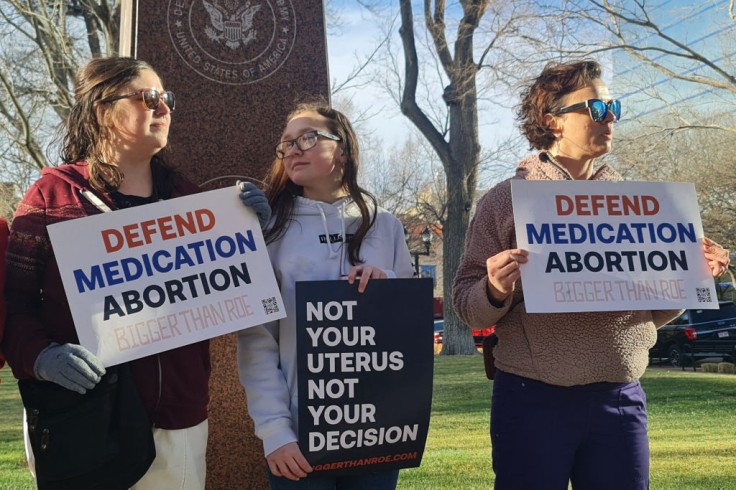
California lawmakers are ensuring that their in-state doctors are protected for providing access to abortion for their patients.
California State Senator Nancy Skinner, a Democrat from Berkeley, introduced a new bill in the state Legislature to protect doctors who mail abortion pills to people in other states from prosecution.
The proposed bill aims to prevent California from extraditing doctors facing charges in another state for providing abortion medication and would also shield doctors from having to pay fines.
Additionally, the bill would allow California doctors to sue anyone who tries to stop them from providing abortions.
New California bill shields doctors and healthcare practitioners
The Associated Press reported that Skinner emphasized that the bill is aimed at ensuring California residents traveling in other states or living there temporarily, like college students, have access to medication that is legal in their home state.
However, the bill would also apply to California doctors treating patients who live in other states.
The proposed California bill not only protects doctors who provide abortion pills but also shields doctors who mail contraceptives and transgender-related medications.
Skinner's bill is part of a growing trend among states, as Connecticut, Massachusetts, Maryland, New York, and Vermont have proposed or passed similar laws.
The Connecticut law, for instance, blocks criminal summonses from other states related to reproductive healthcare services that are legal in Connecticut and blocks extradition unless the person fled from a state requesting them.
The bill declares that it is the public policy of California that doctors should not be charged for providing abortion medication, and it goes beyond abortion pills to protect healthcare practitioners who provide related services.
This proposed legislation protects healthcare practitioners from being penalized by other states for providing reproductive health services, including contraception, transgender-related medications, and abortion.
By shielding these medical practitioners from criminal charges and extradition, the bill allows them to continue providing necessary health care to patients, regardless of their geographic location.
Calls for major retailers to sell abortion pills
California's move to protect doctors who provide abortion pills comes on the heels of Senate Democrats' call for four major retailers, Walmart, Kroger, Costco, and Albertsons, to make the prescription abortion pill mifepristone available at their pharmacies.
CNBC reported that the senators sent letters to the CEOs of these companies, urging them to become certified with the Food and Drug Administration to provide the medication.
In January, the FDA lifted a restriction that required mifepristone to be dispensed in person at a medical facility.
The senators expressed their disappointment that these major retailers had yet to publicly declare whether they would sell mifepristone. They asked them to respond by March 21 with their plans to provide the medication.
This call to action by Senate Democrats and the proposed California bill demonstrates a growing effort to expand access to reproductive healthcare services, including abortion, contraception, and transgender-related medications.
While some states have attempted to block the distribution of abortion pills, California is leading the charge in protecting healthcare practitioners who provide these services. Major retailers are being called upon to provide greater access to medication like mifepristone.
With the introduction of this proposed bill, California is taking an important step towards ensuring that reproductive healthcare services are accessible to all patients, regardless of their geographic location.
As per the ACLU, pregnant individuals still have a constitutional right to decide whether to have an abortion or not. Both the U.S. and California Constitutions protect this right.
The state of California only prohibits abortions after the point of viability, which is when a doctor determines, based on a reasonable medical judgment, that the fetus could potentially survive outside the uterus without exceptional medical assistance.
Related Article: Overcoming Postpartum OCD: One Mom's Journey to Diagnosis, Treatment